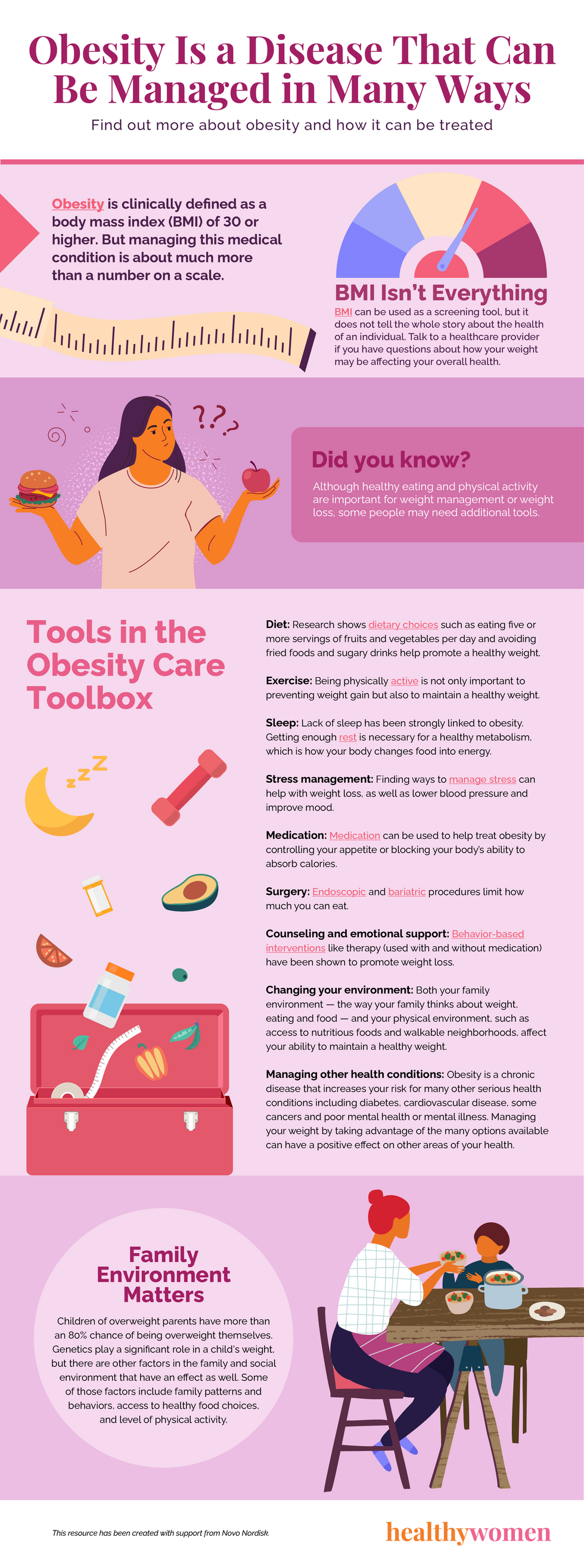Designed by Megan Schofield
Obesity is clinically defined as a body mass index (BMI) of 30 or higher. But managing this medical condition is about much more than a number on a scale.
BMI Isn’t Everything
BMI can be used as a screening tool, but it does not tell the whole story about the health of an individual. Talk to a healthcare provider if you have questions about your BMI.
Did you know?
Although healthy eating and physical activity are important for weight management or weight loss, some people may need additional tools.
Tools in the obesity care toolbox
- Diet: Research shows dietary choices like eating five or more servings of fruits and vegetables per day and avoiding fried foods and sugary drinks help people lose weight.
- Exercise: Being physically active is one of the best ways to lose weight and keep it off.
- Sleep: Lack of sleep has been strongly linked to obesity. Getting enough rest is necessary for a healthy metabolism, which is how your body changes food into energy.
- Stress management: Finding ways to manage stress can help with weight loss, as well as lower blood pressure and improve mood.
- Medication: Sometimes medication can be used to help treat obesity by controlling your appetite or blocking your body’s ability to absorb fat.
- Surgery: Endoscopic and bariatric procedures limit how much you can eat.
- Counseling and emotional support: Behavior-based interventions like therapy (used with and without medication) have been shown to promote weight loss.
- Changing your environment: Both your family environment — the way your family thinks about weight, eating and food — and your physical environment, such as access to nutritious foods and walkable neighborhoods, affect your ability to maintain a healthy weight.
- Managing other health conditions: Keeping other health conditions, such as diabetes, high cholesterol or high blood pressure, in check can have a positive effect on weight. Managing these conditions through healthy eating, physical activity and appropriate medication can be helpful with weight loss as well.
Family environment matters
While children of overweight parents have more than an 80% chance of being overweight themselves, genetics only play a small part. Other factors affecting weight include appetite signals from the brain, behaviors, family and social environment, and access to healthy food choices and physical activities.
This resource has been created with support from Novo Nordisk.








